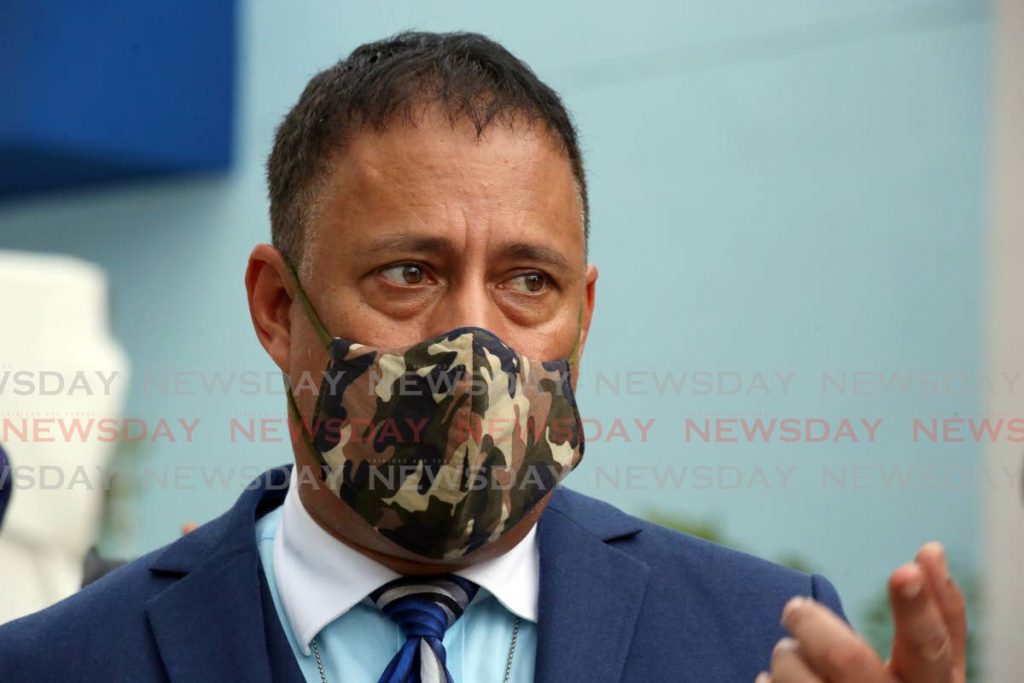The Police Service is under the gun

THE EDITOR: The dramatic events and circumstances which have visited the Police Service over the last few weeks can be aptly described as both unfortunate and unnecessary.
The functions of the police in this modern democratic society can be considered essential and functionally diverse, to the extent that renowned criminal justice author MH Moore has referred to policing as the “impossible job.” He came to this enlightened conclusion because policing goals and objectives are so numerous that they are essentially impossible to accomplish.
It is against this backdrop that a case can be made for the Police Service, as an institution, being under the gun, and more so as a consequence of the following events and circumstances:
1. The demand for policing services has increased in quantity and complexity over the years, to the extent that many of traditional responsibilities have been assigned to special-purpose units outside the Police Service, such as the Traffic Warden Division, Transit Police Unit, Environmental Police Unit, to name a few.
2. The assignments to those units do not automatically relieve the police of their overriding responsibility to act in circumstances that warrant their intervention. The Police Service remains the organisation to which the public will turn in respect of breaches of the law, the maintenance of order and any incidence of perceived injustice committed in any sphere within TT.
3. The issue of serious crimes has been viewed like a plague on the Police Service, being the organisation in the frontline of efforts to confront and manage this debilitating phenomenon. Both the Government and the public at large have expectations that the police must deal with this matter regardless of limitations, most of which are out of the organisation's control.
4. The police have been starved of a permanent indigenous leadership since the departure of Trevor Paul in 2007. He was followed by James Philbert who occupied the position purely in an acting capacity until he was succeeded by Canadian Dwayne Gibbs, who was fired in 2010 and replaced by Stephen Williams, who acted as CoP for his entire tenure until he was eventually succeeded by Gary Griffith, who was appointed by the Police Service Commission (PSC) in 2018 on a three-year contract.
5. Griffith's contract ended on August 17. However and unfortunately, arrangements were not finalised by the PSC to advance a suitable candidate to formally occupy the position of commissioner on a contractual basis, as required.
As a consequence, Griffith was appointed by the PSC, on an interim basis, to act as commissioner until a candidate has been formally appointed to the position. In the meantime, acting Griffith sought and was granted vacation leave by the PSC, which ended on September 20.
6. In the midst of this untenable leadership vacuum, a number of situations, of high-profile interest, have come to light, some of which preceded the search, evaluation and appointment process for a candidate for CoP.
There is no doubt that this administrative and procedural dilemma has a severe debilitating effect on the honesty and integrity of the administration and operations of the service.
Further, it must be acknowledged, by all stakeholders, that the success and effectiveness of policing activities depend, to a very large extent, on competent, ethical and predictable leadership.
In these overwhelming circumstances, while no verifiable facts have as yet been presented to the public, the credibility of the organisation and its leadership remains under the gun.
KEITH RENAUD
Point Fortin

Comments
"The Police Service is under the gun"